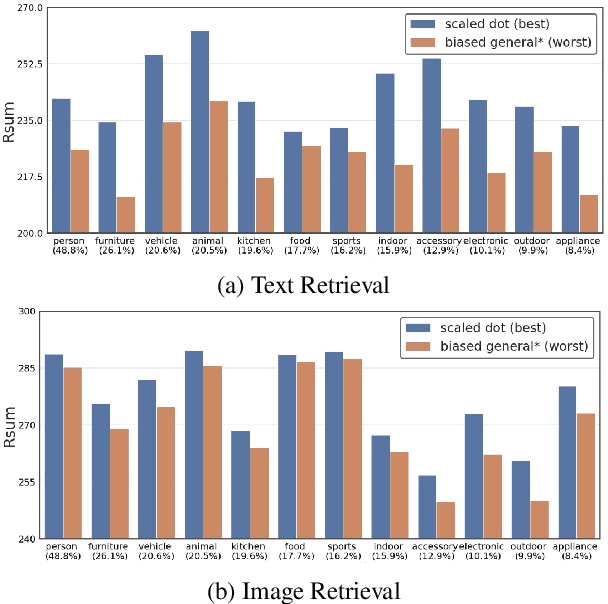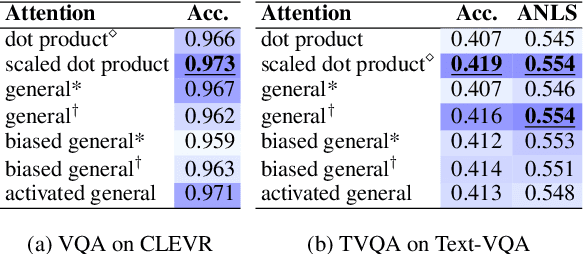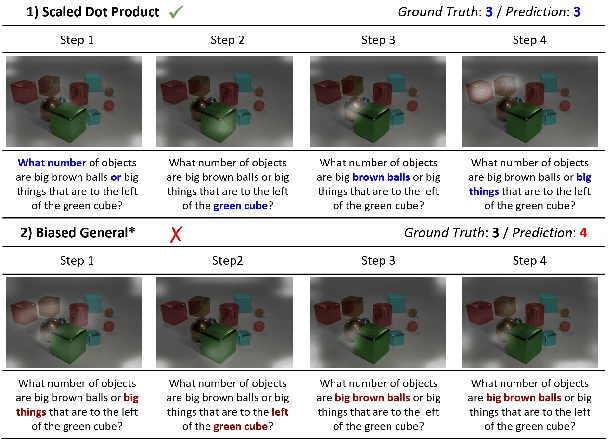Understanding Attention for Vision-and-Language Tasks
Paper and Code
Aug 17, 2022



Attention mechanism has been used as an important component across Vision-and-Language(VL) tasks in order to bridge the semantic gap between visual and textual features. While attention has been widely used in VL tasks, it has not been examined the capability of different attention alignment calculation in bridging the semantic gap between visual and textual clues. In this research, we conduct a comprehensive analysis on understanding the role of attention alignment by looking into the attention score calculation methods and check how it actually represents the visual region's and textual token's significance for the global assessment. We also analyse the conditions which attention score calculation mechanism would be more (or less) interpretable, and which may impact the model performance on three different VL tasks, including visual question answering, text-to-image generation, text-and-image matching (both sentence and image retrieval). Our analysis is the first of its kind and provides useful insights of the importance of each attention alignment score calculation when applied at the training phase of VL tasks, commonly ignored in attention-based cross modal models, and/or pretrained models.
 Add to Chrome
Add to Chrome Add to Firefox
Add to Firefox Add to Edge
Add to Edge